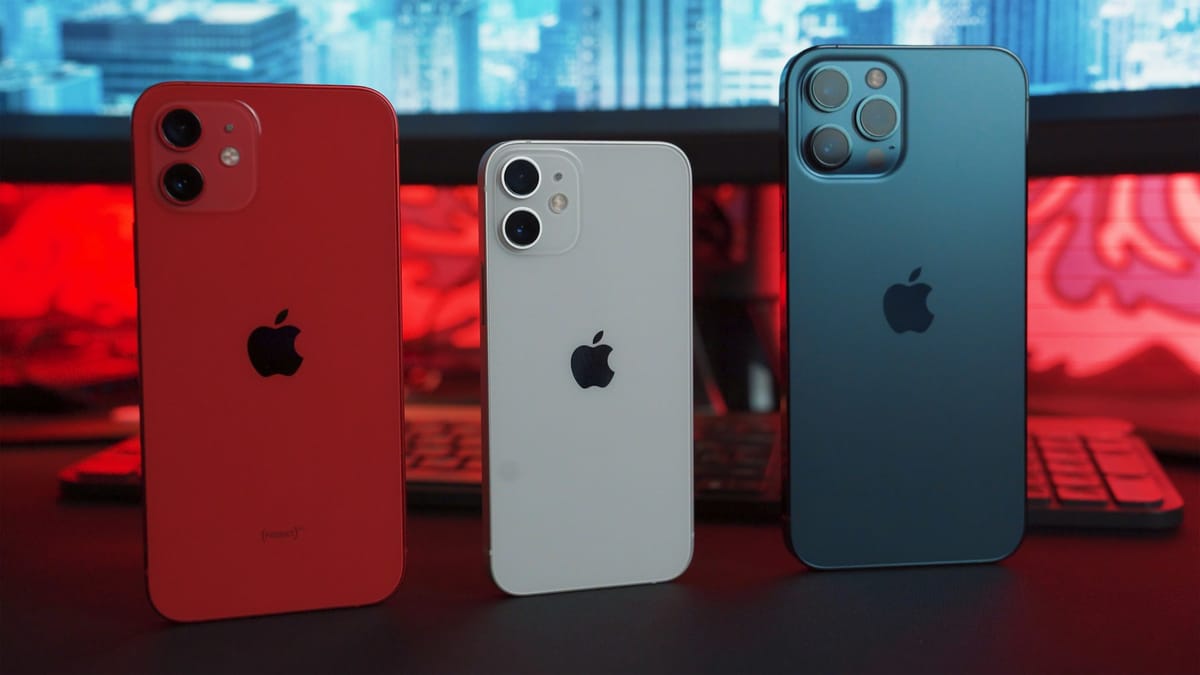Apple quietly introduced code into iOS 18.1 which reboots the device if it has not been unlocked for a period of time, reverting it to a state which improves the security of iPhones overall and is making it harder for police to break into the devices, according to multiple iPhone security experts.
On Thursday, 404 Media reported that law enforcement officials were freaking out that iPhones which had been stored for examination were mysteriously rebooting themselves. At the time the cause was unclear, with the officials only able to speculate why they were being locked out of the devices. Now a day later, the potential reason why is coming into view.
“Apple indeed added a feature called ‘inactivity reboot’ in iOS 18.1.,” Dr.-Ing. Jiska Classen, a research group leader at the Hasso Plattner Institute, tweeted after 404 Media published on Thursday along with screenshots that they presented as the relevant pieces of code.
Does anybody know if LineageOS has an equivalent feature?
Law enforcement shouldn’t be able to get into someone’s mobile phone without a warrant anyway. All this change does is frustrate attempts by police to evade going through the proper legal procedures and abridging the rights of the accused.
Yep! The police, being fascists, HATE this.
Well, when you confiscate a piece of paper, even without a warrant to read it you can do that physically when it’s in your possession, and it’s part of the evidence or something, so everyone else can too, so why even fight for that detail.
They just pretended it’s fine with mobile computers.
I thought that “fruit of a poisonous tree” is a real principle, not just for books about Perry Mason. /s
So - yes. It’s just really hard to trust Apple.
To confiscate anything, unless it’s lying openly, you need a warrant.
If a cop sees an unlocked phone with evidence of a crime on it, that doesn’t need a warrant. If it’s locked and they only have the suspicion of evidence, they need a warrant. Same as with entering a building or drilling a safe.
Is analogy with people in (very quiet) places who don’t lock doors to their homes correct? Then it’s as if the door is not locked, a cop doesn’t have to ask permission (or warrant)?
No. Even if a house is unlocked, the fourth amendment guarantees “the right of the people to be secure in their persons, houses, papers, and effects, against unreasonable searches and seizures”.
What constitutes “unreasonable”, is of course, up to a judge.
If a cop can look in your window from the porch and see a meth lab, yeah, they’re going to come back with a warrant, mostly because they can’t just pick up the house and take it to evidence. If your phone is lying unlocked, and they see something obviously criminal on the screen, they’re going to take it right then and there.
That’s what I meant. Phones should be treated similarly to houses.
That argument sounds great until you consider that a piece of paper won’t contain almost the entirety of your personal information, web traffic, location history, communications. You may say you could find most of that pre computer era in someone’s house, but guess what you would need to get inside and find those pieces of paper…
It’s not an argument, just a thought.
They usually do have a warrant or it was seized lawfully.
This is about keeping them out even when it’s lawful.
Lawyer. Not true.
Example: An officer pulls someone over and suspects them of something arrestable. Then says “Do you want me to get your personal belongings from your car?”
Any person agreeing to this allows them to hold your phone as evidence indefinitely in the US now.
That’s all lawful.
They can search you and the area when arrested. They can search the car if they have probable cause that evidence will be in the vehicle
I said have a warrant or seized lawfully, not nust have a warrant.
Edit: I didn’t even write what I said I said correctly. Corrected it lol.
Seized or not, they can not force you to unlock your phone via pin without a warrant. They can only force you to use biometrics.
Right, but this is about them bypassing you entirely.
They don’t need your fingerprint or pass code if they can bypass it themselves. This feature protects you when they’ve seized it lawfully which can be for many reasons.
Or even if they’ve seized it unlawfully. Or if it’s been stolen by a regular thief, a cybercriminal, the mafia, or a cartel.
I’m not sure how much it would actually help for a regular thief.
This is about protecting it against more sophisticated attacks. But the rest probably have those means if wanted.
It is their job to find evidences, not my resposibility to provide them.
I’ve never said otherwise.
It’s their job to find a way to hack into the phone.
This feature makes that even harder.
Other people answered, but to your point, in some cases THEY CAN compel without a court order.
Biometrics don’t conform to certain laws, and it gets even more complicated if you’re entering the US through customs. They can practically hold you indefinitely if you don’t comply. Whether you have legal representation is sort of an after thought.
The police can engage in rubber-hose cryptanalysis. In many countries, it’s legal to keep a suspect in prison indefinitely until they comply with a warrant requiring them to divulge encryption keys. And that’s not to mention the countries where they’ll do more than keep you in a decently-clean cell with three meals a day to, ahem, encourage you to divulge the password.
That’s what you need distress codes for.
Destruction of evidence is a much different crime.
I would suspect it’d no longer be legal to hold them indefinitely and instead at best get the max prison sentence for that crime instead.
A us law website says that’s no more than 20y as the absolute max, and getting max would probably be hard if they don’t have anything else on you.
You’d have to weigh that against what’s on the device.
Also, even better if the distress code nukes the bad content, and then has a real 2nd profile that looks real, which makes it even harder to prove you used a distress code.
In most cases, destroying evidence will result in an adverse inference being drawn against the accused. It means that the court will assume that the evidence was incriminating which is why you destroyed it.
On one hand, Fuck Da Police
On the other hand, Fuck Apple

GrapheneOS also has this. Not sure stock android includes it.
It does not. I don’t have it on my Pixel 6. From other people’s comments, it sounds like Samsung and other OEMs have added their version, though.
That seals the deal for me on rooting my pixel. I’ve been hesitant about rooting ever since I bricked an extra galaxy s3 and nearly bricked my (main device) Verizon galaxy s5
GrapheneOS is the easiest ROM install bar none. Get the en browser (needs to be chrome-based) to the install url, hook the phone cable, and let it run. It’s super straightforward. It’s not rooting though, you don’t get root access by default.
Wow things sure changed about Android roms! I still remember how difficult it was to try to simply install a rom through Knox
calyxOS has it too.
Samsung does too but I’ve not set it up as such. Instead, it automatically locks the device from biometric unlocks every 24 hours until you login with your pin again.
It does, labled “Auto Restart”, but only when “preformance issues detected” or time specified. Apple is quite late on this feature.

on GrapheneOS it is labeled auto reboot and it specifically says “automatically reboot device if it hasn’t been unlocked in xxx hours” with a default of 18.
This is clearly the Samsung interface and thus not stock Android. Doesn’t even really look like the same feature.
The way this article is framed sounds like bullshit to me. 18.1 was released less than 2 weeks ago. Any phone running this version of iOS would have had to already been in custody and somehow upgraded to this version, or otherwise brought into custody very recently—too recently for this to have already posed such a problem that law enforcement is “freaking out” and reporting it to the media.
iOS has auto update for a while and iOS users update their devices more often than Android. 2 weeks is not a long time for adoption of new version for iOS.
The way this article is framed sounds like bullshit to me. 18.1 was released less than 2 weeks ago. Any phone running this version of iOS would have had to already been in custody and somehow upgraded to this version, or otherwise brought into custody very recently—too recently for this to have already posed such a problem that law enforcement is “freaking out” and reporting it to the media.
A non-insignificant amount of people have been running the public betas because of Apple intelligence, RCS / iMessage toys, UI customization, etc. For example, MixPanel reported about 2% of the iOS install base running 18.0 before 18.0’s launch. IMHO, that’s pretty crazy for a beta OS.
Do two fucks make a right?
Thank you Apple, right side of history here, fuck fascist pigs
Meanwhile security-oriented Android forks: “You didn’t do that?”
Wouldn’t that disrupt the usage of a phone as a server?

oh fuck I can’t stop laughing
You joke but people do that. I’ve seen people repurpose their old android phones to host small services on their home networks. I won’t comment on how reasonable it is because battery, but it’s a thing.
I really doubt an iOS update will affect people using android phones as servers.
It would affect me. I have an android virtual machine running on my iPhone.
could be a simple hot spot cell backup, like for reporting network outage, remoting in to certain devices, etc. essentially a secondary ISP to report on main isp and troubleshoot. especially if you have smart devices you could reboot remotely.
That’s it!! Now I will NEVER use an iPhone as a server. 😋
iPhone? Don’t these kill apps after a few minutes in background?
*seconds. KDE Connect dying the moment I turn off the iPad annoys me to this day.
It’s not that simple. iOS has a really sophisticated system for deciding which things to keep in memory and which to evict, and it only does that when it needs more resources. Choosing which apps to kill is based on how recently an app was used, how much of share resources are in use, how often the app gets used, if it’s doing background processing, and other more subtle signals.
Usually if people notice apps being killed when in the background a lot it’s because one of the apps they’re switching to is using a lot of resources, which forces the eviction of other apps.
Interesting, tell me more please. I presume it requires loading a different OS image as standard iPhone/android OS images will pause apps and attempt to go into a deep sleep after a long enough period?
A phone server that is disconnected from cellular is already broken anyways.
Why does rebooting it improve the safety or security of the phone?
When you first boot up a device, most data on that device is encrypted. This is the Before First Unlock (BFU) state. In order to access any of that data, someone must enter the passcode. The Secure Enclave uses it to recreate the decryption keys that allow the device to access that encrypted data. Biometrics like Face ID and Touch ID won’t work: they can’t be used to recreate the encryption keys.
Once you unlock the device by entering the passcode the device generates the encryption keys and uses them to access the data. It keeps those keys in memory. If it didn’t, you’d have to enter your passcode over and over again in order to keep using your device. This is After First Unlock (AFU) state.
When you’re in AFU state and you lock your device, it doesn’t throw away the encryption keys. It just doesn’t permit you to access your device. This is when you can use biometrics to unlock it.
In some jurisdictions a judge can legally force someone to enter biometrics, but can’t force them give up their passcode. This legal distinction in the USA is that giving a passcode is “testimonial” because it requires giving over the contents of your mind, and forcing suspects to do that is not legal in the USA. Biometrics aren’t testimonial, and so someone can be forced to use them, similar to how arrested people are forced to give fingerprints.
Of course, in practical terms this is a meaningless distinction because both biometrics and a passcode can grant access to nearly all data on a device. So one interesting thing about BFU vs AFU is that BFU makes this legal hair-splitting moot: biometrics don’t work in BFU state.
But that’s not what the 404 Media articles are about. It’s more about the forensic tools that can sometimes extract data even from a locked device. A device in AFU state has lots of opportunities for attack compared to BFU. The encryption keys exist, some data is already decrypted in memory, the lightning port is active, it will connect to Wi-Fi networks, and so on. This constitutes a lot of attack surface that hackers could potentially exploit to pull data off the device. In BFU state, there’s very little data available and almost no attack surface. Automatically returning a device to BFU state improves resistance to hacking.
Great explanation. That was super insightful.
So even with BFU, does the iPhone not connect to the internet? I guess i hadn’t noticed it doesn’t.
Also are you still about to track via gps an iPhone that is in the off state? Just curious if there’s a lot of other vectors where the iPhone is still connected?
So even with BFU, does the iPhone not connect to the internet? I guess i hadn’t noticed it doesn’t.
Well, it’s complicated. Most of these topics are. In BFU state, an iPhone (or iPad with cellular) with an active SIM and active data plan will connect to the Internet. It won’t connect to Wi-Fi at all. If you have USB restricted mode disabled and the right accessory connected it will connect to an Ethernet network, but that may fail if the network requires 802.1x and the credential is not available in BFU state. Similarly if USB restricted mode is disabled you can use tethering to a Mac to share its network.
For location, there’s two mechanisms. One mechanism relies on directly communicating with the device, which only works if the device has network.
The other mechanism is the “FindMy network” which uses a Bluetooth low energy (BTLE) beacon to let other nearby devices detect it, and they report that to FindMy. It’s a great technology. The way it uses rotating IDs preserves your privacy while still letting you locate your devices. I know that this works when a device is powered off but the battery is not completely dead. I’m not sure if it works in BFU state… my guess it that it does work. But this is not networking. It’s just a tiny Bluetooth signal broadcasting a rotating ID, so it’s one-way communication.
Other than that, I’m not as sure how things work. I believe Bluetooth is disabled by default in BFU state, but I suspect users can choose to re-enable Bluetooth in BFU state to connect to accessibility accessories. I’m not sure about the new emergency satellite communication.
But one thing I know for sure is that Apple has world class security engineers, and one area they work hard to secure is devices in BFU state.
Wow ya that’s a lot of stuff to have to keep track of. Those security engineers are something else. I thought software security was already complex but iPhones or any phones sounds like its even more so
Also, in the BFU state, iPhones at least, won’t allow any data connections through USB
It’s more complicated than that. It’s called USB restricted mode. The lightning port is always willing to do a minimal subset of the protocols that it supports in order to do smart charging. By default most of the protocols it supports are disabled in BFU state. In AFU state it gets more complex than that. Accessories that you’ve previously connected can connect for one hour after the device is locked. This helps keep USB restricted mode from being really annoying if you briefly disconnect and reconnect an accessory.
USB restricted mode can be disabled by a user option (Settings > [Touch / Face] ID & Passcode > Allow Access When Locked > Accessories) or by a configuration profile. Disabling it allows accessories to connect at any time, and generally lowers the security of your device. But in some cases that’s necessary, for instance when you use an accessibility accessory to use your device.
If USB restricted mode is a concern for you, you should consider Lockdown Mode (Settings > Privacy & Security > Lockdown Mode). This changes several settings on your device to make it much more resilient to attack.
Very informative. Thank you.
You mentioned the lightning port. Is there any difference with the newer phones with USB-C when it comes to these functions?
I’m glad you find this informative. It’s a topic that’s important to me both personally and professionally, and there’s a lot of wrong information out there. But the best and most reliable info is in the Apple Platform Security Guide, such as Activating data connections securely and Direct memory access protections for Mac computers.
In this topic I don’t think there’s any important difference between USB-C and lightning. Both form factors support a bunch of USB protocols as well as some Apple-only protocols, and both have USB restricted mode.
Once rebooted, you need to enter your PIN to unlock the phone (and the SIM as well). Before that it is not possible to unlock the phone with biometric credentials (face ID or fingerprint).
As far as I’m aware, police can force you to hand over your biometric credentials (they can hold the phone to your face to unlock it when you have face ID enabled, or can move your finger to the fingerprint sensor). But they can’t force you to reveal the PIN number.
Yep: but they can’t force you to give them the password because of 5th Amendment protections from self-incrimination.
And even if they did have the right to tell you to give them the password, they don’t have access if you simply refuse to cooperate. They can get your fingerprints, face ID, or retina scan by force. They cannot extract information from your brain.
BTW: Lots if phones also have a “lockout mode” that can be enabled that will give you the option to lock it down to password-only without turning it off. It can be good for recording police interactions, because it will continue to record them while they can’t access the contents of the phone if they swipe it from you.
What about amputating the hand?
or can move your finger to the fingerprint sensor).
Good luck guessing which finger and on which hand. You have 3 tries before a password is required.
Most likely after rebooting but before unlocking the decryption key is not present in memory in plaintext.
It wasn’t quite, I had to opt in.
What’s the setting name?
Inactivity reboot.
If this is true, then it’s not a setting that users can access. At least not that I can find.













